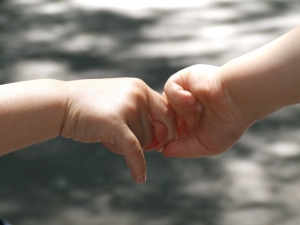Written by: Lenorae Atter, Attorney at Law
 As a Jacksonville Family Law attorney, often I am asked whether Florida allows homosexual couples to adopt children. In the recent years, Florida has been in the spotlight for the gay adoption ban that exists here in the state. With celebrities like Rosie O’Donnell publicly adopting and living in Florida, many think that it is now a non-issue. The fact is that Florida remains semi-silent on the issue of homosexual adoption in that there are presently cases that provide law showing that the ban is unconstitutional. The decision was reached in a South Florida case and was later the topic of another adoption. After the cases were heard, the Department of Children and Families (DCF), the original party to the suit, decided not to appeal to the Florida Supreme Court and thus, the ban has been lifted, in theory at least.
As a Jacksonville Family Law attorney, often I am asked whether Florida allows homosexual couples to adopt children. In the recent years, Florida has been in the spotlight for the gay adoption ban that exists here in the state. With celebrities like Rosie O’Donnell publicly adopting and living in Florida, many think that it is now a non-issue. The fact is that Florida remains semi-silent on the issue of homosexual adoption in that there are presently cases that provide law showing that the ban is unconstitutional. The decision was reached in a South Florida case and was later the topic of another adoption. After the cases were heard, the Department of Children and Families (DCF), the original party to the suit, decided not to appeal to the Florida Supreme Court and thus, the ban has been lifted, in theory at least.
Now, the question remains whether all parts of the state will follow suit in allowing homosexuals to adopt children in need of a family. Though DCF has historically allowed gay couples to foster children, they have been reluctant to allow gay couples to adopt. The agency with which a couple works may be the telling factor in how well the adoption process works for gay couples. Though the ban was ruled unconstitutional, the true tests have not been measured in certain parts of the state and only time can tell.
Recently, the UCLA completed a report regarding the lifestyle, stability, and overall health of a child living with homosexual parents in both foster and adoptive homes. The report provides information that children living in gay, lesbian and heterosexual households are actually doing equally well. This is part of a multi-year study conducted by the psychology department of UCLA.
The study reviewed 82 children that were considered high-risk in Los Angeles County that were adopted from foster care. Of the 82 children, 60 were placed with heterosexual couples and 22 with homosexual couples (both gay and lesbian). The study was conducted at different intervals and showed that the children did equally well in the homes in advancement with reasoning, IQ tests, etc.
In the study, more of the children placed in the homosexual household actually were placed there having significantly worse risk factors. However, during the course of the study, the gains the children made put them equal to the other children after their placement. For example, if a child was a D before placement in the heterosexual household and was later tested at a B after placement, the child in the homosexual household was placed as an F and later, after placement, also tested at a B. The findings indicate that the stability of the home for these children is more important than the sexual relationship of the household in which they are placed.
Studies such as these will most likely continue and look at a number of different factors, as the children get older. However, for now, it is a great tool to assist those couple looking to adopt and meeting the unwelcome roadblock. Finding the right placement for a child can be challenging and ultimately people, regardless of their biases, believe they are looking out for the best interest of the children. As more reports and studies are completed hopefully it will help adoption entities to better understand that a safe, stable environment is the key for a child over other factors.
If you are looking to adopt, then you should speak with a family law attorney about your rights and options.
 Jacksonville Divorce Lawyer Blog
Jacksonville Divorce Lawyer Blog

